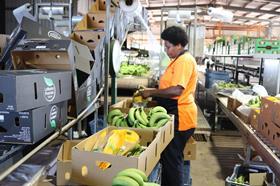
The Australian Fresh Produce Alliance (AFPA) has called for A$10m to be allocated over two years to fund a dedicated horticulture taskforce within the Fair Work Ombudsman (FWO) ahead of changes being made to the piece rate provisions within the horticulture award.
In a press release, AFPA chief executive Michael Rogers said the horticulture taskforce would be responsible for educating, investigating, and undertaking compliance and enforcement activities in the sector.
“Changes to the piece rate provisions within the horticulture award will set an hourly floor rate for all pieceworkers. This is a significant change to the award. The AFPA has been consistent in calling for clear and enforceable piecework provisions within the award. To ensure that these changes are enforced, we need to ensure that any non-compliance is addressed by industry stakeholders, the supply chain, and a properly resourced Fair Work Ombudsman,” said Rogers.
The changes to the horticulture award, which were recently announced by the Fair Work Commission, come at a time when there has been a significant shift in the composition of the harvest workforce.
The last two years have seen a significant increase in the number of Pacific Australia Labour Mobility (PALM) scheme workers employed in horticulture, with the total number of PALM workers in Australia now over 19,000.
The announcement of an Australian agriculture visa programme has also been welcomed by industry, while currently under development, Phase 1 of this programme is anticipated to commence early in 2022.
“The AFPA has been working with relevant agencies on the development of the Ag Visa and we are very comfortable with the progress made to date,” said Rogers.
“We have been consistently supportive of ensuring the programme has high standards for employers and protects worker welfare. The settings for this visa are so important in delivering outcomes for workers and employers, and in complementing the PALM scheme.”
Rogers said changes to the harvest workforce composition, the industry’s award and rising input costs are set to challenge horticulture growers into 2022.
“Investing in a horticulture taskforce within the FWO makes sense. There has been increased uptake of more regulated migration programmes and there is about to be a significant shift in the award, it is the perfect opportunity to really ensure all growers are implementing the new award appropriately and if employers ignore the standard they are prosecuted,” said Rogers.



